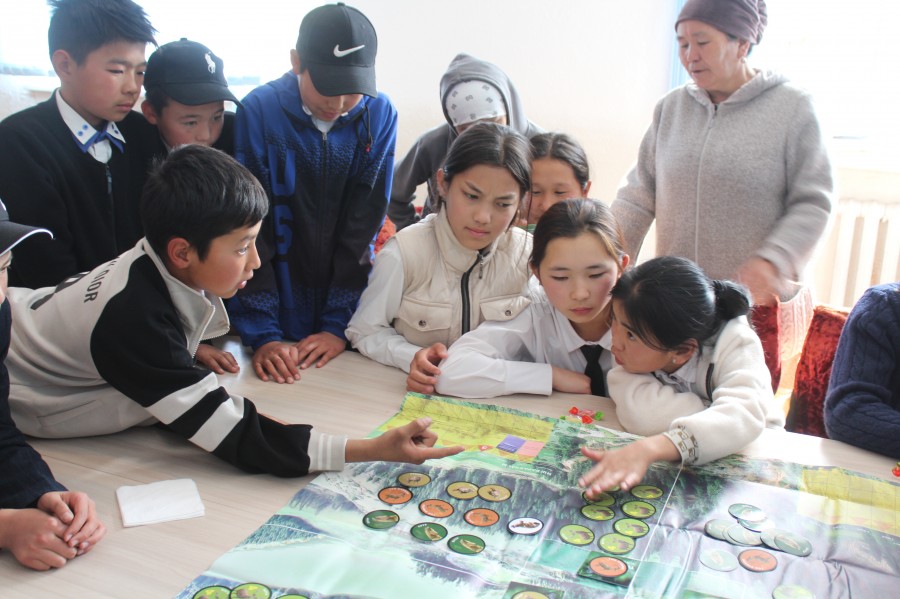
Snow leopard, argali, ibex and red deer (maral) - key mammal species- have been selected in Kyrgyzstan for their adaptation to climate change.
Changes force animals to alter their migration routes and habitat within reserves and natural parks, exposing themselves to danger in unprotected areas. Roads and fences impede the movement of mammals, limiting their access to food and water, which can lead to their death. In addition, the migration of domestic livestock to higher mountains displaces wildlife from their usual ranges, often causing human-wildlife conflicts and contributing to poaching.
Despite this, specially protected natural areas and local communities have not yet paid sufficient attention to the impact of climate change in the management of biodiversity and ecosystems.
The project aims to conserve and protect migratory species and their habitats, and to prevent human-wildlife conflict by providing alternative livelihoods and developing ecosystem-based methods for adapting to climate change.
In twelve Aiyl Aimaks included in the project area in Issyk-Kul and Naryn Oblasts, pastures border specially protected natural areas and animal migration routes, hence grazing, tourism and hunting are prohibited in these areas. Degradation and reduction of pasture productivity, conflicts over natural resources, as well as emergencies and natural disasters constitute serious threats to both ecosystems and the population.
One of the main objectives of the project is to raise awareness and understanding among communities about the need for conservation and the sustainable use of natural resources.
Stakeholders including SPNAs, Aiyl Okmotu, pasture committees and local communities received training, advisory support and technical assistance to better understand the vulnerability of key mammal species and their habitats in the context of climate change and related factors.
38 biology and geography teachers from the schools in the project area participated in specialized trainings on “Climate Change Impacts on Ecosystems and Migratory Mammal Species” and conducted thematic open lessons in their schools.
Tools for animal adaptation were developed and tested by using the ecosystem-based approach and wildlife management standards that take climate change into account.
Preliminary mammal migration routes have been identified for SPNAs and Aiyl Aimaks whose pastures border the protected area.
Sustainable land use and integrated resource management plans have been developed for local communities, and detailed maps showing the boundaries of grazing areas along animal migration routes have been prepared.
In 2023, 23 energy-efficient Jalyn stoves were installed in households in Issyk-Kul and Naryn Oblasts, as well as in the Khan-Tengri and Naryn Nature Reserves. These innovative devices were developed by experienced engineers of the CAMP Alatoo PF to reduce the consumption of wood fuel, which contributes to the rational use of resources.
To communicate and raise awareness about the opportunities and benefits of the ecosystem-based approach and wildlife management in response to climate change.